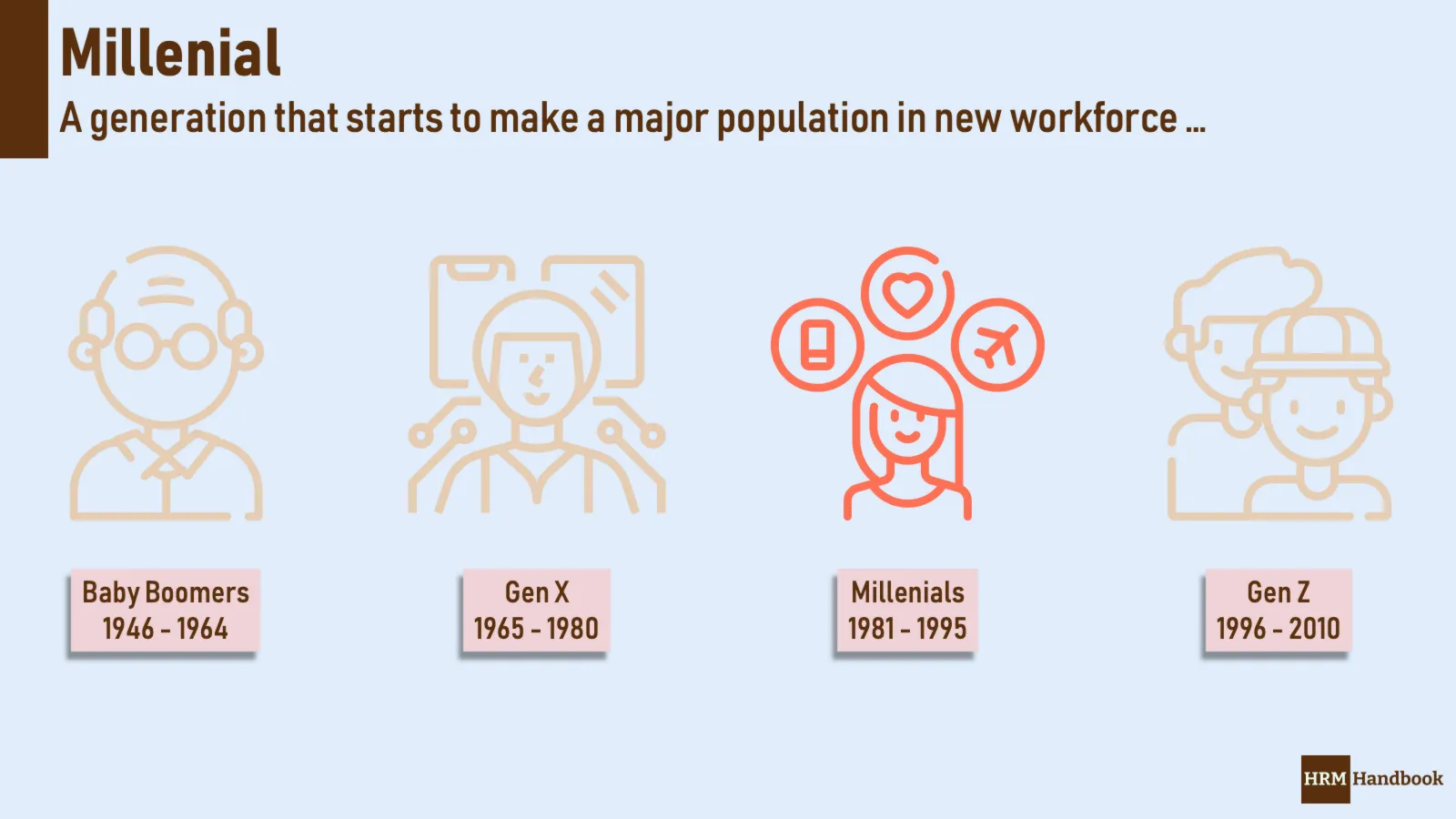Millennial
Millennials, also known as Generation Y, are the demographic cohort following Generation X and preceding Generation Z. Researchers and popular media use the early 1980s as the starting year of birth and the mid-1990s to early 2000s as the ending year of birth, with the generation usually defined as people born between 1981 and 1996.
Millennials are referred to as the first global generation and the first generation to grow up in the internet age, a generation generally characterised by increased internet, mobile device and social media use and knowledge, and are therefore sometimes referred to as digital natives.
Millennials around the world have experienced significant economic upheaval since the start of their working lives; many faced high youth unemployment rates in their early years in the labour market as a result of the Great Recession (the time of the Financial Crisis after 2008).
Psychologist Jean Twenge, author of the 2006 book Generation Me, considers millennials, along with younger members of Generation X, to be part of the so-called Generation Me. Twenge attributes traits of self-awareness and tolerance to millennials, but also describes a sense of entitlement and narcissism that show the increased narcissism of millennials compared to previous generations when they were teenagers and twenty-somethings.

Although millennials are often said to ignore conventional advertising, they are in fact heavily influenced by it. They are particularly sensitive to appeals to transparency, to experiences rather than things, and to flexibility.
Millennials and Human Resources
They are often considered relatively troubled employees because they do not share the same values as those who were the first young working generation after the fall of socialism. This was the generation that focused on success and hard work. Millennials seek job satisfaction and are not willing to sacrifice their free time for their employer.
Many also accept short-term challenges that allow them to better align their personal priorities with the need to earn a living. They are able to work hard and solve a major problem, but then they also ask for enough free time to travel around the world, for example.
For many of them, a career is not an attractive form of motivation. This poses a major challenge for corporations, as their offer of rapid career growth may not be met with understanding. Many prefer a good balance between leisure and work.
Some also deplore hoarding and seek to live sustainably in order to contribute to the overall health of the environment and planet Earth. The opportunity to volunteer and to be supported by their employer is also important to them.
They sometimes cause conflicts with older employees who often see them as spoiled brats, but as always, the truth always lies somewhere in the middle.